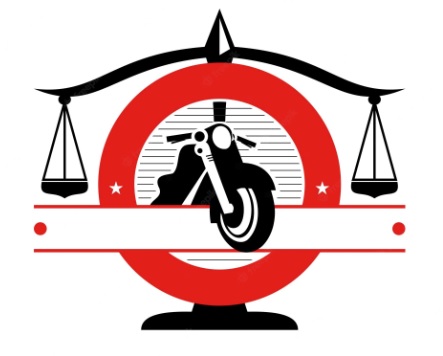Transport law is a specialized branch of law that deals with the legal issues related to transportation and logistics. It is also referred to as transportation law and is concerned with the legal aspects of the movement of people and goods from one location to another. This article will discuss transport law in detail, including its key elements, its regulatory aspects, common issues, and cases.

Table of Contents
Introduction
Transportation law encompasses a wide range of issues, including road traffic laws, maritime law, aviation law, insurance law, and environmental law.
The main purpose of transport law is to ensure that the transportation system is safe and efficient. It is also concerned with protecting the legal rights of those involved in transportation activities, such as passengers, shippers, and transport operators. Transport law is also concerned with the regulation of the transportation industry, including the licensing of transport operators and the enforcement of safety standards.
Types of Transport Law
Transport law covers a wide range of issues, including road traffic laws, maritime law, aviation law, insurance law, and environmental law. Road traffic laws are laws that govern the use of roads and highways, such as speed limits, traffic signals, and parking regulations. Maritime law is concerned with the law of the sea, including the regulation of ships, ports, and navigational aids. Aviation law is concerned with the regulation of aircraft and air traffic, such as air safety standards, pilot licensing, and airport regulations. Insurance law is concerned with the regulation of insurance policies, such as liability coverage and compensation for injuries. Environmental law is concerned with the protection of the environment, such as the regulation of air pollution and water pollution.
Key Elements of Transport Laws
The key elements of transport law include the following:
- Safety: Primarily concerned with ensuring the safety of the transportation system. It sets out safety requirements for the operation of vehicles and vessels, as well as safety standards for the transportation of goods.
- Liability: Sets out the legal responsibilities of those involved in transportation activities, such as passengers, shippers, and transport operators. It sets out the legal liability of these parties in the event of an accident or injury.
- Regulation: Concerned with the regulation of the transportation industry, such as the licensing of transport operators, the enforcement of safety standards, and the regulation of insurance policies.
- Rights: Also concerned with protecting the legal rights of those involved in transportation activities, such as passengers, shippers, and transport operators. It sets out the rights and responsibilities of these parties in relation to the transportation system.
- International: The regulation of international transportation activities, such as the regulation of air traffic and the movement of goods across borders.
International Transport Law
International transport law is a branch of transport law that deals with the regulation of international transportation activities. It is concerned with the regulation of air traffic, the movement of goods across borders, and the enforcement of safety standards. International transport law is also concerned with the protection of the rights of those involved in international transportation activities, such as passengers, shippers, and transport operators.
International transport law is governed by a number of international treaties and conventions. These include the Convention on International Civil Aviation, the Convention on the High Seas, and the Convention on the Law of the Sea. These treaties and conventions set out the legal responsibilities of those involved in international transportation activities, as well as safety standards and regulations.
Regulatory Aspects of Transport Law
Transport law is also concerned with the regulation of the transportation industry. This includes the licensing of transport operators, the enforcement of safety standards, and the regulation of insurance policies. The main purpose of transport law is to ensure that the transportation system is safe and efficient. It is also concerned with protecting the legal rights of those involved in transportation activities, such as passengers, shippers, and transport operators.
The licensing of transport operators is an important aspect of transport law. In order to operate a vehicle or vessel, transport operators must obtain a license from the relevant regulatory authority. This ensures that transport operators meet the safety requirements and regulations set out by the relevant authority.
The enforcement of safety standards is also an important aspect of transport law. Transport law sets out the safety requirements for the operation of vehicles and vessels, as well as safety standards for the transportation of goods. These standards must be met by transport operators in order to ensure the safety of the transportation system.
The regulation of insurance policies is also an important aspect of transport law. Insurance law is concerned with the regulation of insurance policies, such as liability coverage and compensation for injuries. This ensures that passengers, shippers, and transport operators are adequately protected in the event of an accident or injury.
Common Transport Law Issues
Transport law is concerned with a wide range of issues, such as road traffic laws, maritime law, aviation law, insurance law, and environmental law. Common transport law issues include the following:
- Road Traffic: Road traffic laws are laws that govern the use of roads and highways, such as speed limits, traffic signals, and parking regulations.
- Maritime: Maritime law is concerned with the law of the sea, including the regulation of ships, ports, and navigational aids.
- Aviation: Aviation law is concerned with the regulation of aircraft and air traffic, such as air safety standards, pilot licensing, and airport regulations.
- Insurance: Insurance law is concerned with the regulation of insurance policies, such as liability coverage and compensation for injuries.
- Environmental: Environmental law is concerned with the protection of the environment, such as the regulation of air pollution and water pollution.
Common Transport Law Cases
Transport law is a specialized branch of law that deals with the legal issues related to transportation. Common transport law cases include the following:
- Road Traffic Accidents: Road traffic accidents are one of the most common types of transport law cases. These cases involve the legal responsibility of the parties involved in the accident, as well as the enforcement of traffic laws, such as speed limits and parking regulations.
- Maritime Accidents: Maritime accidents are another common type of transport law cases. These cases involve the legal responsibility of the parties involved in the accident, as well as the enforcement of maritime laws, such as navigational aids and port regulations.
- Aviation Accidents: Aviation accidents are another common type of transport law cases. These cases involve the legal responsibility of the parties involved in the accident, as well as the enforcement of aviation laws, such as air safety standards and pilot licensing.
- Insurance Claims: Insurance claims are another common type of transport law cases. These cases involve the enforcement of insurance policies, such as liability coverage and compensation for injuries.
- Environmental Cases: Environmental cases are another common type of transport law cases. These cases involve the enforcement of environmental laws, such as the regulation of air pollution and water pollution.
Conclusion
Transport law is a specialized branch of law that deals with the legal issues related to transportation. It is concerned with the legal aspects of the movement of people and goods from one location to another. It encompasses a wide range of issues, including road traffic laws, maritime law, aviation law, insurance law, and environmental law. The main purpose of transport law is to ensure that the transportation system is safe and efficient. It is also concerned with protecting the legal rights of those involved in transportation activities, such as passengers, shippers, and transport operators.
Transport law is an important area of law that has evolved over time in response to the changing transportation needs of society. It is an area of law that requires specialized knowledge and experience in order to effectively represent those involved in transport activities. If you have any questions or concerns about transport law, it is important to seek the advice of an experienced transport lawyer.

